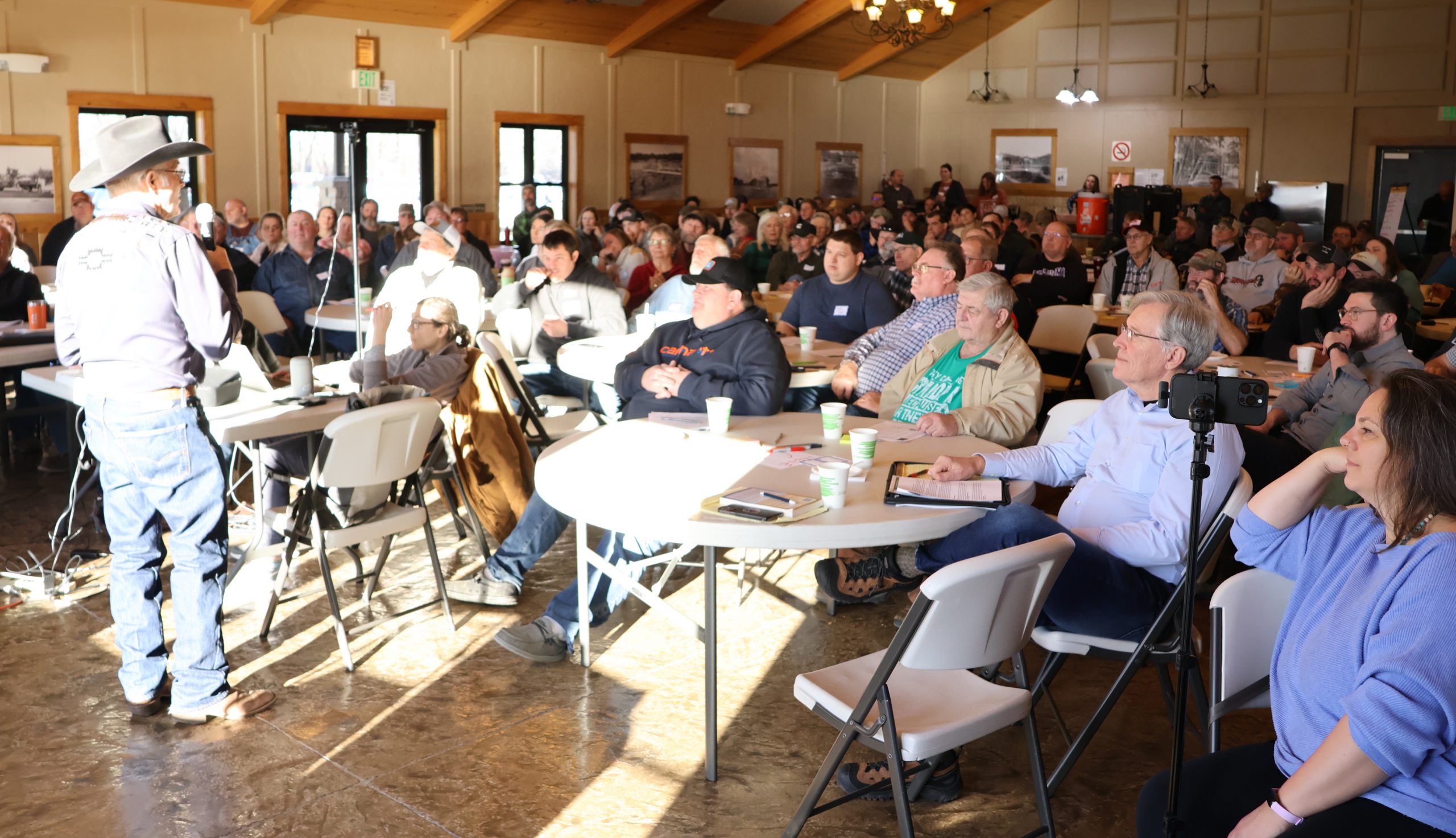ALBERT LEA, Minn. — Corn and soybeans may dominate the agricultural landscape in southern Minnesota and northern Iowa, but reintroducing small grains such as oats into the rotation could help make farming more economically, agronomically and environmentally sustainable, while serving a growing consumer demand for healthy food, said a panel of national and local experts during a recent Land Stewardship Project (LSP) workshop in Albert Lea.
“It’s all driven by diversity,” Roy Pfaltzgraff, who farms 2,200 acres in northeastern Colorado, told the over 150 farmers and other ag professionals from three states gathered for the “Bringing Small Grains Back to Minnesota” workshop, held Jan. 28 at Edgewater Bay Pavilion in Albert Lea. Besides LSP, co-sponsors of the workshop included Albert Lea Seed and Practical Farmers of Iowa.
Since coming back to the family operation in 2016, Pfaltzgraff has increased the operation’s production base from a handful of crops to over 18 species, including several kinds of small grains. He said this diversity has increased his farm’s resiliency in an area that only gets 13 inches of precipitation annually, and that resiliency has repercussions all the way to people’s dinner table.
“The more things we raise, the better our soil is,” Pfaltzgraff said. “The better the soil is, the more nutritious things are. Farmers need to remember they are feeding people when they are farming.”
Small grains such as oats, once a staple across parts of the Corn Belt, have largely disappeared from large parts of the region, taking with them vital markets and infrastructure, said Shea-Lynn Ramthun, a Goodhue County farmer and LSP soil health organizer. However, recent USDA figures show oat acreage is making a comeback in areas like southern Minnesota and northern Iowa as farmers seek avenues for diversifying their corn-soybean rotation in a way that builds soil and reduces the need for expensive chemical inputs. They are also responding to a growing consumer demand for oats, which has a reputation as a heart-healthy food. The market for oats in the U.S. is expected to have a 7.8% mean annual growth rate between now and 2030, according to one analysis.
One of those farmers who has added oats back into their rotation is Landon Plagge, who farms 4,000 acres an hour south of Albert Lea near Latimer, Iowa. He told the workshop participants that since he began including oats in his rotation, his soil health has improved and erosion has plummeted. In addition, fertilizer and pesticide costs have dropped and it’s opened up new opportunities such as a cattle grazing enterprise. Plagge said that when considered over several growing seasons, having oats in the rotation is an economic winner because it boosts row crop yields while cutting costs.
The Iowa farmer sees even more economic opportunities in diversification. That’s why he has launched Green Acres Milling, an oat processing initiative that will break ground in Albert Lea this spring, and is proposed to go online in 2026. Around 70 farmers have bought shares in the mill, which would initially process oats raised on 30,000 acres of land in the region. One estimate is that each oat-producing acre would use 50 pounds less purchased nitrogen annually. That translates into not only fewer nitrates in the area’s water, but more money in the local economy, said Plagge.
“We want to be sustainable. We want to do great things for the environment,” he said. “But we also have to make money too.”
Local processing of small grains provides a way to connect eaters with the source of their food and to use their pocketbook as a way to support a different approach to farming, said Bob Quinn, a Montana farmer, scientist and author who founded a specialty wheat processing and marketing company. In his book, Grain By Grain, A Quest to Revive Ancient Wheat, Rural Jobs, and Healthy Food, Quinn described how the organic small grain-based food business he created helped diversify the rotation in his part of Montana while producing healthy food, creating jobs and keeping wealth local. Treating food as a healthy source of nutrition that benefits the land and communities can help reverse the trend of farmers being forced to sell into a commodified, industrial system and being relegated to “price taker” status, said Quinn.
“Under a regenerative system, everybody wins — our farms, our communities, our Earth and our people,” he said.
During an afternoon workshop session, a panel involving the keynote speakers as well as local experts fielded questions from the audience about everything from fertilization rates for small grains to ways farmers and eaters can connect around healthy, sustainably-produced food. One concern raised by the workshop attendees is that the vast majority of oats consumed in this country are imported from Canada, even though two of the country’s top oat users are based in Minnesota.
“What if our homegrown companies bought more homegrown product?” Ramthun asked at one point. “The potential for rural Minnesota is huge.”
-30-
Additional Material:
• Video presentations by Bob Quinn, Roy Pfaltzgraff & Landon Plagge
• LSP Ear to the Ground podcast interviews with:
– Bob Quinn
– Roy Pfaltzgraff
– Landon Plagge
The Land Stewardship Project (LSP) is a nonprofit organization dedicated to fostering an ethic of stewardship for farmland, promoting sustainable agriculture and developing healthy communities in the food and farming system. LSP has offices in the Minnesota communities of Montevideo, Lewiston and South Minneapolis.
